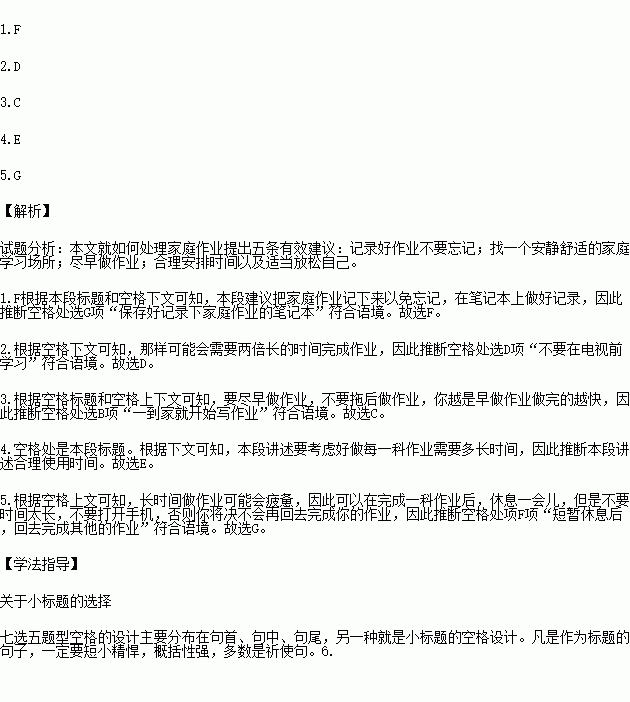题目内容
根据短文内容,从段短文后的选项中选出能填入空白处的最佳选项。选项中有两项为多余选项。
How to Deal with Your Homework
Write it down. 1. . Make a note on your notebook. Always remember to write down any homework for school so you won’t forget anything.
Create a homework station. Find a comfortable and quiet place to work. 2. . It will take twice as long to get the homework done. Shut off your cell phone, power off your computer and close the door.
Do it as early as possible. Don’t leave homework to the last minute. 3. . The earlier you start your homework, the sooner you will finish! Do all your homework as early as you can. Then you won’t have a pile of (一堆)homework the next day.
4. . Think about how long it will take you to finish each homework subject. For example: English — ten minutes, science — ten minutes, math — forty minutes, Chinese — twenty minutes, etc.
Relax yourself. You can easily get tired by sitting through an hour or two of homework without stopping. Once you finish homework for a subject, take a small break. Just make sure it’s quick (no more than 15 minutes). Do not turn on the cell phone, or you’ll never go back and finish your homework. 5. .
A. Start with your hardest homework.
B. You can take a walk or find something to eat.
C. Start as soon as you get home.
D. Never do your homework in front of the TV.
E. Use your time in a proper way.
F. Keep a homework notebook where you record all your homework.
G. After short breaks, return to finish up the rest of your work.

